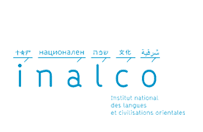Dans le cadre du séminaire : Usages techniques, objets élaborés et patrimoine culturel immatériel dans le monde chinois, Aaron Stephen Moore (Associate Professor, Arizona State University) présentera une communication intitulée :
The Yalu River Era of Constructing East Asia: Technology and Japanese Imperial Power on the Colonial Borderlands
Le jeudi 12 mars 2015, 10h-13h
Bâtiment Le France, 190-198 av. de France (Salle 681 Elisabeth Allès)
Colonial Manchuria and Korea witnessed Japan’s first actual instances of what became known as “comprehensive national land planning,” which was a dominant developmental paradigm during Japan’s post-war high-speed growth era. This talk explores the formation in Japan of a certain type of technical rationality emerg-ing worldwide in the 1920s and 1930s—the idea of “comprehensive technology” (sōgō gijutsu) or transforming nature and society into an efficient, optimal system whereby each part somehow contributes to other parts of the whole in mutually reinforcing ways. While research has shown that introducing advanced science and technology were essential to Japan’s colonial enterprise, there is a need for more work that goes beyond the plans of engineers, businessmen, and bureaucrats. I argue that an uncritical reliance on their materials can lead to reproducing their ideology of technocratic expertise overcoming nature in our work. This itself was an essential technique of Japanese imperial power and in post-war development discourse throughout East Asia. Through a case study of Sup’ung Dam and the related Dadong Port Coastal Industrial Plan on the Manchuria-Korea border, I will therefore examine the specific practices, conflicts, and negotiations among different actors, institutions, and forces in the colonies that went into the formation of “comprehensive technology” in order to reveal how technocratic planning discourse naturalized itself as a coherent, rational, and progressive force. I’ll conclude by discussing the importance of de-naturalizing the discourse of comprehensive planning since it con-tinued to hold sway as Japan became a global developmental power in the post-war.
Source : Carnets du Centre Chine






